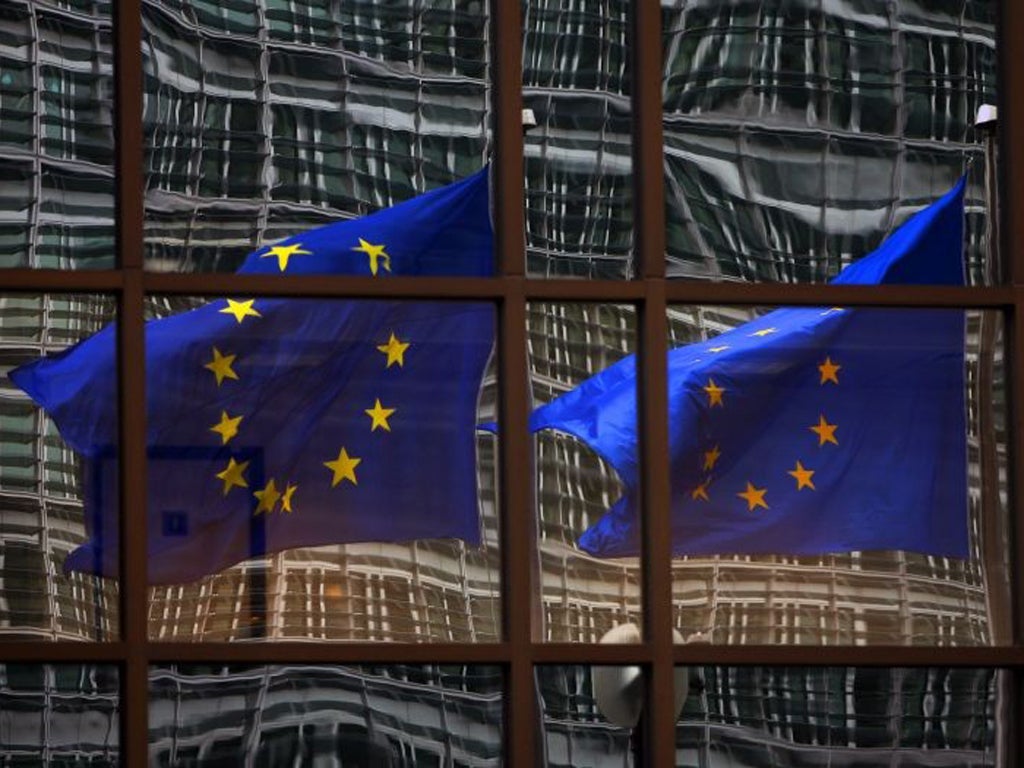European Union earns the Nobel Peace Prize – and a few brickbats
Greeks and Ukip unite to condemn the award for ‘transforming’ a warring continent

Previous winners have included Nelson Mandela, Aung San Suu Kyi, and the Dalai Lama.
But yesterday the Nobel Peace Prize committee awarded their prestigious annual prize to the European Union in a decision that united British eurosceptics and Greek anarchists in howls of protests and derision.
Previous winners have included Nelson Mandela, Aung San Suu Kyi, and the Dalai Lama. But yesterday the Nobel Peace Prize committee awarded their prestigious annual prize to the European Union in a decision that united British eurosceptics and Greek anarchists in howls of protests and derision.
Outlining their unexpected choice, the Norwegian committee said the EU deserved to honoured for helping “transform most of Europe from a continent of war to a continent of peace”.
Detractors were quick to point out the contrast between the prize’s high ideals and recent violent protests against EU-imposed austerity on the streets of Athens and Spain
While committee chairman Thorbjoern Jagland did make reference to the current “grave difficulties and considerable social unrest”, he said the EU and its forerunners “have for over six decades contributed to the advancement of peace and reconciliation, democracy and human rights in Europe”.
Nick Clegg gave the announcement a diplomatic welcome, saying the EU was an “interesting choice” and that: “The idea of peace in Europe is something we should always celebrate and never forget.”
But others were less impressed. Nigel Farage, leader of Eurosceptic party Ukip, said the decision brought the award “into disrepute”, adding that it “goes to show that the Norwegians really do have a sense of humour”.
Martin Callanan, leader of the Conservatives in the European Parliament, called the move “out of touch”, adding it was “a little late for an April fool’s joke”. The sentiment was echoed by right-wing Eurosceptics across Europe, including Dutch politician Geert Wilders.
Those working in Brussels backed the award as a much-needed shot in the arm when tempers are fraying.
Jose Manuel Barroso, president of the European Commission, added: “It is indeed a great honour for the European Union, for all its 500 million citizens, for all its member states, for the European institutions.” It was a message of “hope and confidence” as the countries look to “overcome all the difficulties that we are facing today”.
The prize, worth $1.2m (£750,000), will be presented in Oslo on December 10, although the decision on who would collect the award had not yet been taken. The five-strong panel’s choice of the EU, out of 231 candidates, was unanimous.
There was also strong support for the award in Germany. Former chancellor Gerhard Schroeder called it “important” and said it was a “big encouragement for the people in Europe”. Between the wars the Nobel Peace Prize was awarded to several people looking to reconcile France and Germany. “Since 1945, that reconciliation has become a reality,” Mr Jagland, the head of the committee said, adding the “dreadful suffering in the Second World War demonstrated the need for a new Europe”.
The committee said that after 70 years in which the two European nations had fought three times “today war between Germany and France is unthinkable”.
The EU is the 24th organisation to win the prize following bodies including the United Nations – jointly with Kofi Annan – in 2001 and Médecins Sans Frontières in 1999. The European Economic Community, forerunner of the EU, was created in 1957.
Controversial previous winners...
Barack Obama, 2009
The award, for commitments to reduce nuclear proliferation, was criticised as premature..
Henry Kissinger, 1973
The US secretary of state was honoured for the Paris Peace Accords designed to bring a cease-fire in the Vietnam War. But there was a secret bombing campaign in Laos at the time.
Yasser Arafat, 1994
The award to Arafat, as well as Yitzhak Rabin and Shimon Peres, prompted one member, to resign from the committee, calling the Palestinian leader a “terrorist”.
Who are the Nobel Peace Prize committee
The Nobel Peace Prize is decided by a five-strong committee appointed, in accordance with Alfred Nobel’s will, by the Norwegian parliament, the Storting.
The Norwegian Nobel Committee members, which represent the strength of the political parties in the Storting, stand for a six-year term and can be re-elected.
While it is not a requirement, all are currently Norwegians. It is chaired by Thorbjoern Jagland, who is also the secretary general of the Council of Europe. Other members include Berit Reiss-Andersen, president of the Norwegian Bar Association and Inger-Marie Ytterhorn, a senior political adviser to the Progress Party’s parliamentary group.
The will stated the prize should go to whoever “shall have done the most or the best work for fraternity between nations, for the abolition or reduction of standing armies and for the holding and promotion of peace congresses”. The prize is awarded on December 10, the day Alfred Nobel died.
Join our commenting forum
Join thought-provoking conversations, follow other Independent readers and see their replies
Comments